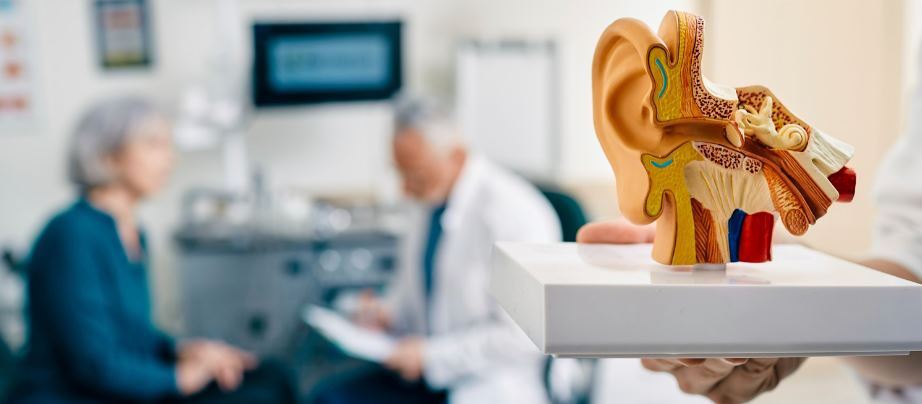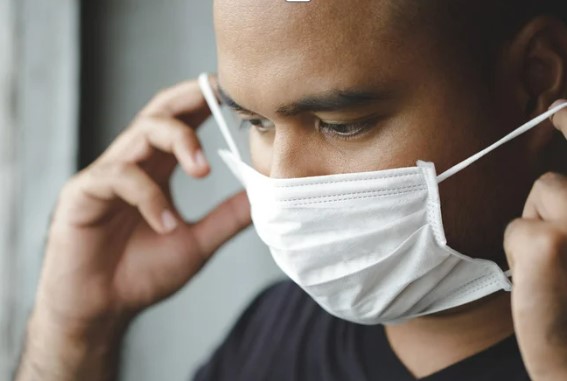Humans connect through communication, and hearing is a vital component of this process. Hearing loss, often associated with aging, can also be caused by genetics, ototoxicity, poor listening habits, ear disease, and other factors. It is frequently referred to as the invisible disease since it happens gradually and is not immediately noticeable until its effects become profound.
However, sudden hearing loss can also occur, and its rapid onset can significantly impact one’s quality of life.
Understanding Sudden Hearing Loss
Sudden hearing loss, also known as sudden sensorineural hearing loss (SSNHL), is a rapid decline in hearing ability in one or both ears. This condition typically develops within 72 hours and can range from mild to severe. Unlike gradual hearing loss, SSNHL strikes without warning.
- Definitions and Criteria
- Incidence and Diagnosis
- Symptoms: When to seek help
- Possible Causes
- Treatment options
- COVID-19 and Sudden Hearing Loss
- Prognosis and new developments
Definitions and Criteria
Sudden Hearing Loss (SHL): A rapid onset of hearing impairment in one or both ears occurring over a 72-hour period.
Sudden Sensorineural Hearing Loss (SNHL): A subset of SHL characterized by an abnormality in the cochlea, auditory nerve, or central auditory perception. It meets audiometric criteria, usually defined as a decrease in hearing of ≥30 decibels (dB) affecting at least three consecutive frequencies.
Idiopathic SSNHL (ISSNHL): SSNHL with no identifiable cause after adequate investigation.
The distinction between SSNHL and sudden conductive or mixed hearing loss is one that should be made by the initial treating health care provider for early diagnosis and management to be instituted. Moreover, nonidiopathic causes of SSNHL must be identified and addressed during the course of management; the most pressing of these are vestibular schwannoma (acoustic neuroma), stroke, malignancy, noise, and ototoxic medications.
It is important to remember that tinnitus is a frequent comorbidity that may persist and, with time, may become the patient’s primary concern.
Incidence and Diagnosis
Sudden sensorineural hearing loss affects 5 to 20 per 100,000 people, with about 4,000 new cases per year in the United States. Up to 90% of SSNHL cases are idiopathic, with possible causes including vascular, viral, or multiple etiologies.
Diagnosis should be prompt and thorough, involving physical examinations, tuning fork tests, pure tone audiometry, blood tests, imaging (usually MRI), and balance tests to rule out nonidiopathic causes such as vestibular schwannoma, stroke, malignancy, noise, and ototoxic medications.

Symptoms and When to Seek Help
Symptoms of sudden hearing loss can include:
- Complete hearing loss in one ear, which is a medical emergency.
- Accompanying symptoms such as dizziness, vertigo, ear pain, or a feeling of fullness in the ear.
- Rapid onset of hearing loss within minutes or a few hours.
If you experience these symptoms, seek medical attention immediately. Early intervention improves the chances of recovery, and treatments such as corticosteroids are most effective when administered soon after onset.
Potential Causes of Sudden Hearing Loss
Researchers have highlighted various potential causes of sudden hearing loss. These include:
- Ear Infection or Earwax Buildup: Infections like otitis externa and otitis media with effusion can lead to hearing loss. Earwax impaction can block the ear and cause hearing loss on one side.
- Viral Infections: Viruses such as the flu, mumps, measles, herpes, and cytomegalovirus can infect the inner ear and cause damage.
- Trauma: Physical injuries to the head, neck, or ear can result from accidents, falls, sports injuries, or exposure to loud noises.
- Ototoxic Medications: Some antibiotics, chemotherapy drugs, diuretics, and NSAIDs can damage the inner ear.
- Autoimmune Disorders: Conditions like lupus, rheumatoid arthritis, and multiple sclerosis can attack the inner ear.
- Circulatory Problems: Reduced blood flow to the inner ear can occur due to cardiovascular diseases or blood clotting disorders.
- Tumors: Acoustic neuromas, benign tumors on the auditory nerve, can exert pressure and disrupt hearing.
- Meniere’s Disease: A disorder of the inner ear causing episodes of vertigo, tinnitus, and fluctuating hearing loss.
- Idiopathic Causes: In many cases, the cause remains unknown despite extensive testing.
- Neurological Conditions: Diseases like multiple sclerosis can affect auditory pathways.
- Barotrauma: Sudden pressure changes, such as during air travel or scuba diving, can damage the ear.
- Metabolic and Hormonal Imbalances: Conditions like diabetes and thyroid disorders can impact hearing.
Treatment Options
Corticosteroids
Corticosteroids are the most common treatment for sudden hearing loss, especially when the cause is unknown. These can be administered in two main ways:
- Orally: Taken as pills.
- Intratympanic Injection: Injected directly into the middle ear. This method has been found to be as effective as oral steroids.
Additional Treatments
If an underlying cause is identified, treatment may include:
- Antibiotics: For bacterial infections.
- Immune System Suppressants: For autoimmune disorders.
- Switching Ototoxic Medications: To prevent further damage if certain drugs are causing the hearing loss.
Amplification Devices
If there is no recovery in hearing after other treatment, hearing devices may be recommended:
- Hearing Aids: Help amplify sound for those with partial hearing loss.
- Cochlear Implants: For those with severe to profound hearing losses, cochlear implants directly stimulate the auditory nerve.
COVID-19 and Sudden Hearing Loss
 Since the onset of the pandemic, several international studies and a great deal of anecdotal data from numerous clinicians have indicated a connection between COVID-19 infection and auditory symptoms (hearing loss, tinnitus – as well as dizziness symptoms). Emerging research also suggests that COVID-19 can lead to sudden hearing loss.
Since the onset of the pandemic, several international studies and a great deal of anecdotal data from numerous clinicians have indicated a connection between COVID-19 infection and auditory symptoms (hearing loss, tinnitus – as well as dizziness symptoms). Emerging research also suggests that COVID-19 can lead to sudden hearing loss.
Potential mechanisms include:
- Direct Viral Invasion: SARS-CoV-2 may infect the cochlea or auditory nerve.
- Inflammatory Response: Severe COVID-19 can trigger a cytokine storm, causing inner ear inflammation.
- Blood Clots: Increased risk of thromboembolic events can obstruct blood flow to the inner ear.
- Autoimmune Reactions: COVID-19 may trigger the immune system to attack the inner ear.
- Neurological Impact: The virus may affect the auditory nerve or other parts of the nervous system.
Prognosis and New Developments
Recovery from SSNHL varies, with spontaneous recovery rates ranging from 32% to 65%. Factors influencing prognosis include age, vertigo, degree of hearing loss, audiometric configuration, and time between onset and treatment.
Recent Developments
Recent developments in the treatment of sudden hearing loss have shown promising advances:
- AC102 by AudioCure Pharma: In preclinical models, a single application of AC102 nearly restored hearing loss caused by noise trauma to pre-trauma levels within 14 days. AC102 works by preventing the death of outer hair cells and protecting the connections between neurons and the auditory nerve. It also increases energy production in neurons and reduces free radical production, which helps in regenerating neurons and sensory cells.
- Cell Reprogramming and Regeneration: Researchers have identified genes, such as Myc and Notch1, which can be activated to reprogram supporting cells in the inner ear to become hair cells. This approach has shown success in preclinical models, indicating potential for regenerating sensory hair cells in humans, which is critical for treating hearing loss caused by damage to these cells.
Despite these promising developments, the effectiveness of high-dose steroids, a common treatment for sudden hearing loss, has been questioned. A recent randomized controlled trial found no significant benefit of high-dose steroids over standard lower doses. Moreover, higher doses were associated with more adverse side effects, such as elevated blood sugar and blood pressure.
These new treatments and findings represent significant steps forward in addressing sudden hearing loss, offering hope for more effective and safer therapies in the future.
Conclusion
Sudden hearing loss can be a frightening and disorienting experience. Prompt medical attention and early intervention are crucial for the best possible outcome. If you or someone you know experiences sudden hearing loss, consult a healthcare professional immediately.
Your hearing is precious: take the necessary steps to protect it.
References:
- American Academy of Otolaryngology-Head and Neck Surgery. (n.d.). Sudden hearing loss. Retrieved from https://www.entnet.org/resource/sudden-hearing-loss/.
- AudioCure Pharma. (n.d.). AC102: A novel treatment for hearing loss. Retrieved from: https://www.audiocure.com/en/ac102/
- Chandrasekhar, S. S., Tsai Do, B. S., Schwartz, S. R., Bontempo, L. J., Faucett, E. A., Finestone, S. A., … & McCoy, J. L. (2019). Clinical practice guideline: Sudden hearing loss (update). Otolaryngology–Head and Neck Surgery, 161(1_suppl), S1-S45. https://doi.org/10.1177/0194599819859885
- Fadila, M. F., & Bensaid, S. M. (2021). Hearing loss and COVID-19: A systematic review. Clinical Otolaryngology. https://doi.org/10.1111/coa.13767
- Federspil, P. (1981). Drug-induced sudden hearing loss and vestibular disturbances. Advances in Oto-Rhino-Laryngology, 27, 144-158.
- Formeister, E. J., Chien, W., Agrawal, Y., Carey, J. P., & Stewart, C. M. (2021). Sudden hearing loss after COVID-19 vaccination. Otology & Neurotology. https://doi.org/10.1097/MAO.0000000000003127
- Hearing Health & Technology Matters. (2021, July 1). New research questions high-dose steroids for sudden hearing loss. Retrieved from: https://hearinghealthmatters.org/sudden-hearing-loss/steroids-treatment-research/
- LifeSciencesIntelligence. (2021, May 12). Gene therapy for hearing loss: Research and advances. Retrieved from: https://lifesciencesintelligence.com/news/gene-therapy-for-hearing-loss-research-and-advances
- Maharaj, S., Soliman, A., Elsayed, M., & Qanadli, S. D. (2021). COVID-19 can present with a broad spectrum of neurological symptoms, including hearing loss. Frontiers in Neurology. https://doi.org/10.3389/fneur.2021.767511
- MedlinePlus. (2020, October 8). Sudden deafness. Retrieved from: https://medlineplus.gov/ency/article/003049.htm
- National Institute on Deafness and Other Communication Disorders. (n.d.). Sudden deafness. Retrieved from: https://www.nidcd.nih.gov/health/sudden-deafness
- National Institute on Deafness and Other Communication Disorders. (2018). NIDCD fact sheet: Sudden deafness. Washington, DC: US Department of Health and Human Services. Retrieved from: https://www.hearingloss.org/hearing-help/hearing-loss-basics/sudden-deafness/
- Sriwijitalai, W., & Wiwanitkit, V. (2020). Post COVID-19 patients and its correlation to hearing loss. American Journal of Otolaryngology: https://doi.org/10.1016/j.amjoto.2020.102542
- Stachler, R. J., Chandrasekhar, S. S., Archer, S. M., Rosenfeld, R. M., Schwartz, S. R., Barrs, D. M., … & American Academy of Otolaryngology-Head and Neck Surgery. (2012). Clinical practice guideline: Sudden hearing loss. Otolaryngology-Head and Neck Surgery, 146(3_suppl), S1-S35. https://doi.org/10.1177/0194599812436449
About the Author
 Nausheen Dawood is an experienced Audiologist and Project Manager with a professional background including primary health care, corporate social investment, and business development. Proficient in the development of academic courses, training, and lecturing, with a focus on clinical student training and supervision. Adept in freelance copywriting, particularly in audiology and health-related topics. Holds a Masters degree in Audiology (Cum Laude), with a strong foundation in clinical research, project development, and strategic planning, complemented by technical training. Specializes in content development and training tailored to diverse audiences. Demonstrates a long-term commitment to research and development, including the implementation of randomized controlled trials, projects, and clinical examinations. Known for establishing robust networks and cultivating valuable stakeholder relationships.
Nausheen Dawood is an experienced Audiologist and Project Manager with a professional background including primary health care, corporate social investment, and business development. Proficient in the development of academic courses, training, and lecturing, with a focus on clinical student training and supervision. Adept in freelance copywriting, particularly in audiology and health-related topics. Holds a Masters degree in Audiology (Cum Laude), with a strong foundation in clinical research, project development, and strategic planning, complemented by technical training. Specializes in content development and training tailored to diverse audiences. Demonstrates a long-term commitment to research and development, including the implementation of randomized controlled trials, projects, and clinical examinations. Known for establishing robust networks and cultivating valuable stakeholder relationships.






